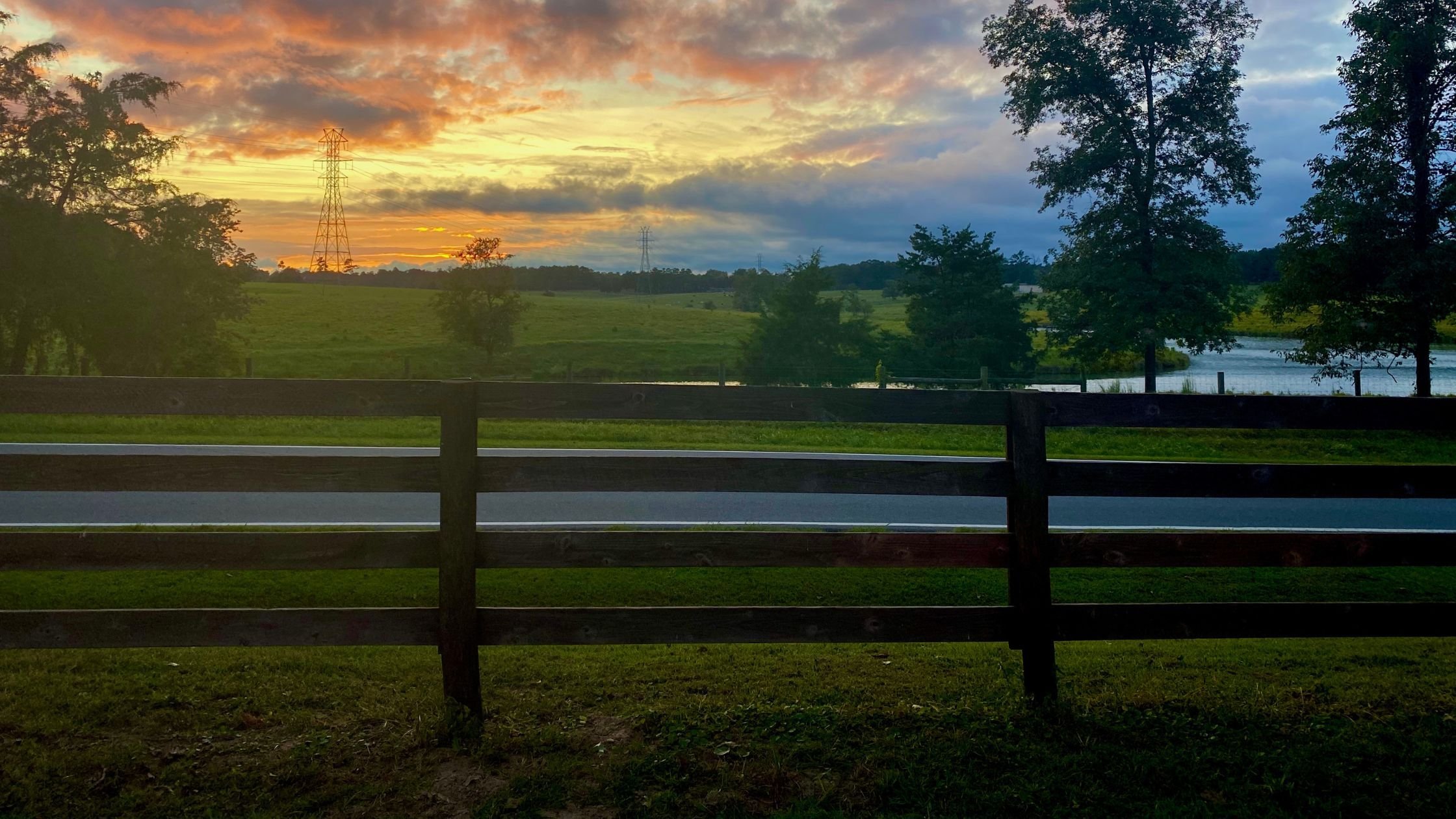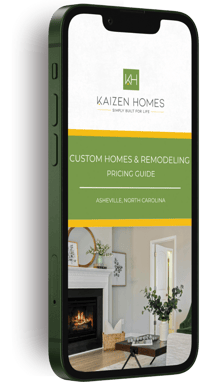5 Min Read
How Much Does an Acre of Land Cost in Asheville, NC?
Asheville attracts people with its mix of mountain views, vibrant culture, and welcoming communities, and finding the right piece of land is the first step toward building a life here. In fact, the cost of an acre of land in Asheville, NC, is often one of the first considerations for anyone dreaming of a home in the Blue Ridge Mountains.
Land prices are not one-size-fits-all. The value of a parcel depends on its location, slope, access to utilities, and even the vision you have for your home. While online listings can provide a snapshot, the true cost of a lot often extends far beyond the asking price.
Let’s explore what shapes land prices in Asheville, NC, how factors like topography and development costs affect your budget, and why involving a builder early can help you make confident, informed decisions.

Average Acre of Land Cost in Asheville, NC
When people ask how much land costs in Asheville, NC, the answer is not as straightforward as pulling a single figure. The cost of an acre in this region varies widely because no two parcels are the same. One lot might be tucked into a quiet valley, while another sits high on a ridgeline with panoramic views. Each comes with its own opportunities and challenges.
Why Costs Vary So Much
The cost per acre in Asheville, NC, depends on more than just size. Here are a few reasons two similar-looking lots can carry very different values:
- Location: Close to downtown or within a desirable community often means a higher price.
- Utilities and access: A lot with water, sewer, and road connections in place typically costs more than raw, undeveloped land.
- Views and setting: Mountain ridgelines and private wooded acreage can both command premiums for different reasons.
- Lifestyle fit: Some buyers want proximity to arts and dining, while others prioritize peace, privacy, and nature.
Looking Beyond the Averages
Instead of focusing only on market averages, think about how your priorities align with different types of land. Do you see yourself enjoying Asheville’s cultural calendar within minutes of your doorstep? Or is your dream waking up to the stillness of a mountain ridge?
Your answers to these questions will help determine not just the type of lot that fits best, but also the true cost you should expect when searching for land.
What Factors Influence Land Prices in Asheville?
Each parcel of land in the Asheville area comes with its own set of characteristics that influence value and overall cost to build.
Location
Proximity makes a big difference. Parcels closer to downtown Asheville or popular towns like Weaverville, Black Mountain, and Hendersonville tend to carry higher values. Communities with amenities such as trails, golf courses, or gated entrances also increase pricing.
Topography and Slope
Asheville mountain property prices are shaped heavily by the land’s terrain. A flat or gently sloping lot is simpler and less expensive to build on. A steep slope can provide breathtaking views but may require additional engineering, excavation, or retaining walls, which adds to Asheville land development costs.
Utilities and Access
Land that already has access to public water, sewer, and roads is generally more valuable. If the parcel requires a well, septic, or a new driveway carved into the mountainside, the costs will extend well beyond the purchase price.
Views and Privacy
From wooded retreats to ridgeline panoramas, views and seclusion are major drivers of land prices in Asheville, NC. Buyers often pay a premium for a sense of privacy and the ability to enjoy nature right outside their door.
Community Amenities and Restrictions
Some neighborhoods offer social perks like walking trails or clubhouses, but they may also include architectural guidelines or homeowner association requirements. These factors can influence both the price of the lot and the style of home you’re able to build.

Hidden Costs Beyond the Acreage Price
When exploring buying land in Asheville, NC, it’s important to remember that the sticker price of an acre is only part of the picture. The true cost comes into focus once you account for the work needed to prepare the land for a home. These Asheville land development costs can vary dramatically depending on the site.
Common Hidden Costs to Expect
- Grading and Excavation
Mountain terrain often requires reshaping before a home can be built. On steep slopes, this process can add significant expense. - Utility Connections
A parcel with existing water, sewer, and power lines is usually more expensive up front, but it may save tens of thousands later. If a lot requires a well, septic system, or new power connections, those costs will quickly add up to the overall cost to build on land in Asheville. - Driveway and Road Access
Steep mountain parcels sometimes need engineered driveways. These can involve retaining walls, special drainage systems, or even private road extensions. - Engineering and Permitting
Certain parcels fall under Buncombe County’s steep slope regulations, which require specialized approvals. Professional surveys, soil studies, and structural engineering plans are often necessary before building. - Preconstruction Services
A well-planned home begins long before construction starts. Site planning, surveying, and design integration are all part of understanding the real investment involved in land for custom homes in Asheville, NC.
Why These Costs Matter
These hidden expenses highlight why simply comparing the cost per acre in Asheville, NC, is not enough. A lower-priced parcel might actually cost more in the long run if it requires extensive preparation, while a higher-priced lot could end up being more economical once development costs are factored in.
How Much Land Do You Need?
When looking at land for custom homes in Asheville, NC, it’s natural to picture rolling acres of mountain property. While the idea of owning ten or more acres sounds appealing, most homeowners find that one to two acres is the sweet spot.
Why 1–2 Acres Often Works Best
- Privacy without excess: A couple of acres usually provide enough space to feel secluded while keeping maintenance manageable.
- Views and outdoor living: With the right lot, even a single acre can offer stunning vistas and room for porches, patios, or gardens.
- Budget balance: Choosing a moderately sized parcel allows you to invest more in the home itself, rather than tying up your budget in land alone.
The Role of Design in Choosing Lot Size
The amount of land you need depends less on acreage and more on how your future home is designed to fit the site. A thoughtful design-build process considers the slope, layout, and orientation of your house so that every square foot of land is used intentionally.
For some, that might mean a smaller lot with sweeping views. For others, it may be a larger property that offers quiet trails and space for entertaining. The key is aligning the lot size with your lifestyle and long-term vision.
When to Involve a Builder in the Land-Buying Process
Many buyers wonder if they should secure a lot first or bring a builder into the process early. In our experience, the best outcomes happen when a builder is involved before you finalize the purchase.
Benefits of Early Collaboration
- Budget clarity: A builder can help you understand how land preparation impacts the total cost of building a custom home in Asheville, NC.
- Design alignment: The home’s layout and style can be tailored to fit the lot’s opportunities and limitations from the start.
- Avoiding surprises: Early site evaluations often uncover issues such as drainage or driveway challenges that could otherwise remain hidden until construction begins.
A More Confident Purchase
Partnering with a professional builder before buying land brings peace of mind. Instead of hoping the parcel you’ve chosen will work for your vision, you’ll know with certainty that your investment supports the home you want to create.
Ready to Explore Land and Home Options?
Download our Kaizen Homes Custom Home Cost Guide to understand the full cost of building a custom home Asheville NC. Or schedule a consultation with our team to talk through your vision, budget, and land options.
Because in Asheville, it’s not just about the price of an acre. It’s about crafting a home that belongs to the mountains, and belongs to you.


